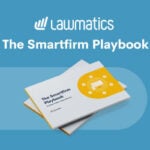John Roberts Decides Voting Rights Already Weak Enough For Him In Latest Supreme Court Ruling
The Supreme Court didn't so much affirm voting rights as it affirmed that John Roberts gets to decide who has voting rights.
(Photo by Erin Schaff-Pool/Getty Images)
“HUGE WIN” and “MAJOR VICTORY” blast press releases, Tweets, and instant reaction headlines. The Supreme Court didn’t completely destroy what’s left of the Voting Rights Act in Allen v. Milligan. Which is good! But what today’s opinion did leave isn’t so much a “Voting Rights Act” as a “John Roberts Act.” And that’s probably not as exciting as the headlines make it seem.
In defense of those headlines, betting on this outcome had felt a lot like throwing all your insulin money on a horse they’d actually euthanized two races earlier. None of the omens were breaking the right way either. It’s the tenth anniversary of the Supreme Court obliterating the Voting Rights Act’s preclearance provisions in Shelby County and an even more robust conservative majority found itself back at the scene of the crime — Alabama — to decide if the Voting Rights Act should have any practical effect at all.

InterAction+ Brings Power Of CRM Software To Law Firms Of All Sizes
The odds got a lot longer when the Court announced that Chief Justice John Roberts — who authored Shelby County — wrote this opinion as well, seemingly putting a cap on a career dedicated to eroding voting rights protections for Black voters. John Roberts has fought to undermine the Voting Rights Acts since at least the early 80s, when a young Roberts warned the then-Attorney General that “something must be done to educate the Senators on the seriousness of this problem.” The “problem” was pending legislation to reaffirm the Voting Rights Act.
You may as well have mortgaged your house for the Washington Generals.
And yet… Roberts did not end the Voting Rights Act today. A decade after deciding it was improper for Congress to assume that a jurisdiction like Alabama might draw racist maps, John Roberts decided… Alabama is drawing racist maps. It’s a real shocker, I know.
Is this really a “major victory” for voting rights though? There’s only one song running through my head…
Sponsored

InterAction+ Brings Power Of CRM Software To Law Firms Of All Sizes

LawPay Pro Offers Upgraded Time And Billing Essentials

How to Achieve Quicker, More Valuable Case Settlements with Minimal Effort: A Guide for Personal Injury Lawyers

How to Achieve Quicker, More Valuable Case Settlements with Minimal Effort: A Guide for Personal Injury Lawyers
So it’s come to this. Keeping the Voting Rights Act on life support is a “major victory.” And given the stakes leading up to this morning’s announcement, it can feel that way. But a better read of this opinion is that Chief Justice Roberts took a look at the state of racial disenfranchisement in 2023 like an artist admiring the fruits of his labor and decided “this looks fine to me.”
It’s not quite fair to say Shelby County eliminated the VRA’s preclearance provisions. The Voting Rights Act can theoretically still require suspect jurisdictions — as defined by Congress based upon a history of discriminatory election practices — to get DOJ approval before implementing any changes that impact voting. The Shelby County decision just declared that the existing congressionally approved list was wrong and then left it up to Mitch McConnell to agree to put handcuffs on GOP state legislatures trying to suppress minority voting. So, yeah, the decision eliminated preclearance.
And Roberts had signaled earlier in this case that he might be willing to stop at killing off preclearance. In the shadow docket decision that allowed Alabama to use these very maps, Roberts dissented expressing concern over the prospect of leaving racial gerrymandering in place until after the Midterms. His conservative colleagues did not see any issues at the time.
This time around, Roberts brought Justice Kavanaugh along for the ride.
Sponsored

The Smartfirm Playbook - Thriving In Today’s Legal Landscape

How Generative AI Is Disrupting Law Firm Billing Practices
“The heart of these cases is not about the law as it exists,” Roberts wrote. “It is about Alabama’s attempt to remake our §2 jurisprudence anew.” Alabama claimed that it could use computers to create supposedly race-neutral maps that looked sort of like the maps the legislature drew — in that the maps mostly agreed that Alabama would have only one district with minority voters having a majority despite comprising almost a third of the state’s population. Roberts wasn’t having the idea that we turn voting rights over to ChatGPT:
One final point bears mentioning. Throughout these cases, Alabama has repeatedly emphasized that HB1 cannot have violated §2 because none of plaintiffs’ two million odd maps contained more than one majority-minority district…. The point is that two million is a very big number and that sheer volume matters. But as elsewhere, Alabama misconceives the math project that it expects courts to oversee. A brief submitted by three computational redistricting experts explains that the number of possible districting maps in Alabama is at least in the “trillion trillions.”
Before Dobbs, the conventional wisdom held that the Chief wanted to give Roe a death by a thousand cuts — uphold the decision in name only while diluting its protections bit by bit. Roberts lost that battle on abortion, but he’s winning the war on the Voting Rights Act.
Taking Shelby County and Milligan as bookends, the Chief’s vision for voting rights is now a lot clearer. He’s not against protections against racial disenfranchisement. For Roberts, voting rights discrimination is in the eye of the beholder.
And the only acceptable beholder is John Roberts.
It’s sort of a separation of powers argument, not unlike his mantra when it comes to judicial ethics. As Roberts seems to see it, the fundamental flaw with the Voting Rights Act was bringing other branches into the mix. From his perspective, state legislatures should be free to push the envelope on racial gerrymandering as much as they wish without the Congress authorizing the Executive to get in the way. If that gerrymandering goes “too far,” then there should still be an avenue to strike it down. But the definition of “too far” should remain in his hands.
John Roberts is, at root, a political operative. That’s how he started and that’s how he’s going to keep it. There’s nothing gained by blowing up the VRA entirely. Alabama fields two Democratic representatives instead of one? Big deal. Politically, the Supreme Court can’t become the only voice still complimenting the emperor’s new clothes — if it destroyed any avenue to call out racialized voter suppression, there would be repercussions for the Court as an institution.
Let the Alabama GOP bite it over one representative so Pennsylvania can sneak in 4 more state reps or whatever. When the fresh-faced John Roberts identified a “problem” in the 80s, he was arguing for undercutting voting rights protections. An older, more savvy Roberts understands that voting rights protections need to be on the books. Hold out the illusion that the courts will consistently protect Black voters only to pick and choose where justice lands based on cold political calculus.
Hope is a hell of an opiate.
Allen v. MilliganEarlier: John Roberts Suggests Some Kind Of Voting Rights ‘Preclearance’ Like The One He Personally Destroyed
 Joe Patrice is a senior editor at Above the Law and co-host of Thinking Like A Lawyer. Feel free to email any tips, questions, or comments. Follow him on Twitter if you’re interested in law, politics, and a healthy dose of college sports news. Joe also serves as a Managing Director at RPN Executive Search.
Joe Patrice is a senior editor at Above the Law and co-host of Thinking Like A Lawyer. Feel free to email any tips, questions, or comments. Follow him on Twitter if you’re interested in law, politics, and a healthy dose of college sports news. Joe also serves as a Managing Director at RPN Executive Search.







